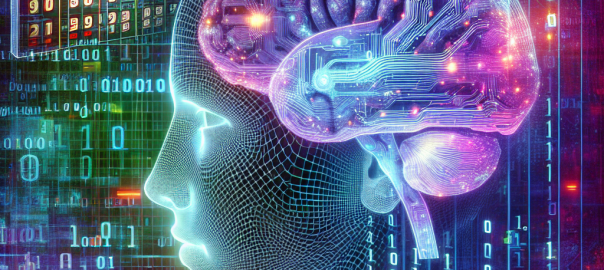Kurzweil’s Age of Spiritual Machines: A Contemplation of Future Reality
Today, we delve into an intriguing piece of literature from legendarily futuristic thinker, Ray Kurzweil – “The Age of Spiritual Machines: When Computers Exceed Human Intelligence.”
Table of Contents
A Published Marvel from the Past for the Future
First, let’s rewind time back to 1999. At a time when deep fears of Y2K Computer Bug-induced apocalypse were profound, Ray Kurzweil forged a path to the future with his audacious predictions in “The Age of Spiritual Machines”. In this compelling piece, Kurzweil espouses technological singularity, where artificial intelligence (AI) surpasses human understanding and capabilities.
AI: A New Breed of Intelligence
According to Kurzweil, a new breed of intelligence projects our evolution. Think about intelligent machines, the kind that not only perform complex tasks with unparalleled precision but also exhibit consciousness. An age where computers would encapsulate spirituality previously attributed exclusively to humans.
Kurzweil demystifies this concept by detailing a timeframe leading to the ‘singularity’. He argues that technology’s exponential growth will eventually result in machines becoming as intelligent as humans by the 2020s, developing their own emotions and consciousness by the mid-21st century.
The Intersection of Technology and Human Life
One such intersection between technology and human life is the concept of uploading human consciousness into machines. Kurzweil mulls the merging of biological and artificial intelligence, culminating in a future where humans will have the ability to ‘download’ their mentalities into non-biological entities, thus attaining virtual immortality. This ushers in an era where one’s existence continues perpetually, with their consciousness meandering in the virtual realm.
Challenges and Debates
Undoubtedly, Kurzweil’s predictions invite controversies. Critics argue that consciousness is not quantifiable or replicable, considering it an exclusively human phenomenon. The concept of spiritual machines necessitates an overhaul of identity, ethics, reality, and even humanity.
Despite the controversy, Kurzweil’s projections have turned out to be remarkably prescient. Today, advancements in computational capabilities, deep learning, neural networks, and AI are gradually realizing the contours of Kurzweil’s vision, even though we’re yet to witness machines acquire human-level intelligence or spirituality.
Final Thoughts
“The Age of Spiritual Machines” is more than a book about machines. It offers a vision of the future, challenges our understanding of consciousness, and stands as a testament to mankind’s unending quest for progress. Whether you find this vision unnerving or thrilling, there’s no denying that Kurzweil’s work garners contemplation.
As we grapple with the ethical, social, and existential dilemmas brought by our technological trajectories, it is key to engage with works like Kurzweil’s, soaking in their wisdom and ideals to navigate this shared futuristic reality.
And remember, we’re living in an era of rapid discovery and advancement – Tomorrow’s literature could very likely become the future’s reality!
 |  |  |

